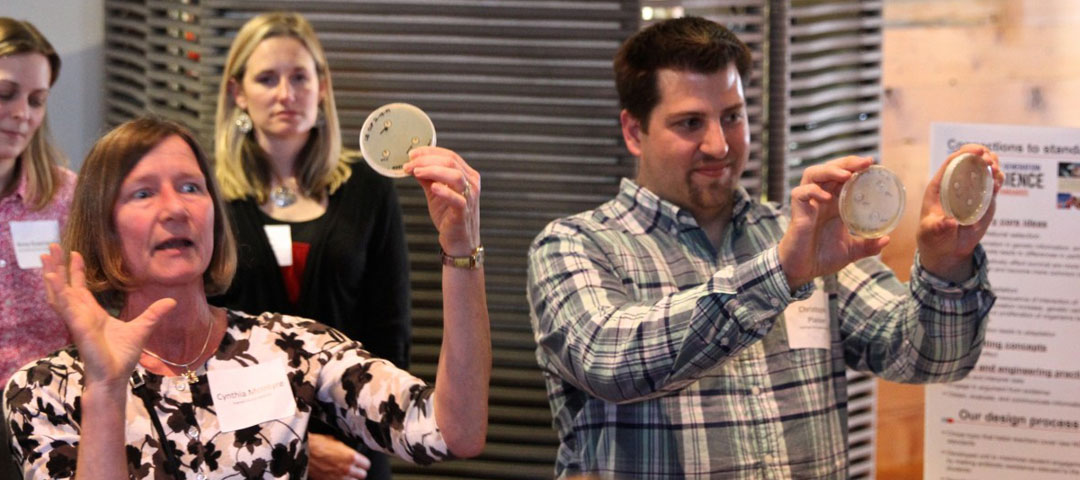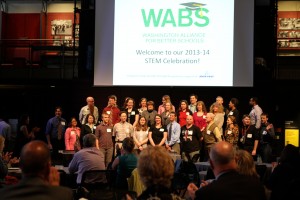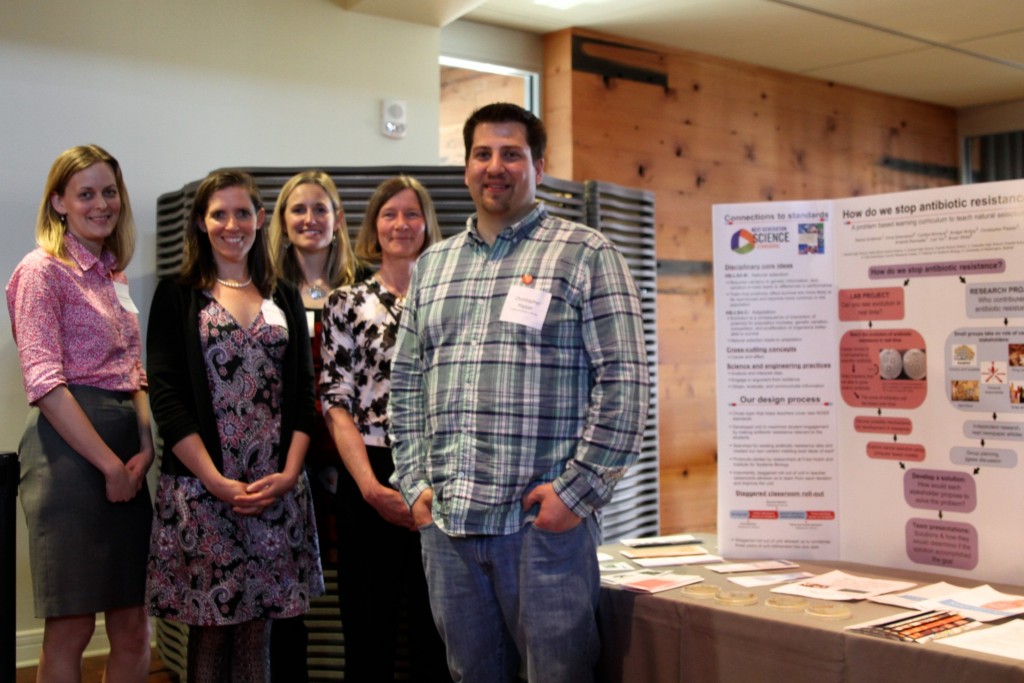ISB’s K-12 STEM Education Work: Collaboration with Washington Alliance for Better Schools
 isbscience.org/news/2014/05/16/isb-k-12-stem-education-work-collaboration-with-washington-alliance-for-better-schools/
isbscience.org/news/2014/05/16/isb-k-12-stem-education-work-collaboration-with-washington-alliance-for-better-schools/
(Photo: Bothell High School teacher Cynthia McIntyre (above left) and ISB’s Chris Plaisier (above right), a senior research scientist in the Baliga Lab, participated in Washington Alliance for Better Schools’ event “A Celebration of STEM” which took place MOHAI on May 6.)
ISB’s K-12 STEM Education work
On May 6, Washington Alliance for Better Schools held “A Celebration of STEM” at MOHAI to showcase projects that middle and high school educators from throughout the Puget Sound region completed as part of the WABS STEM Fellows and Externship Experiences program. WABS, in partnership with industry and research organizations, provided professional development opportunities to these educators to immerse them in contemporary, real-world, problem-based learning experiences that align with Common Core and Next Generation Science Standards.

WABS Fellows Group Shot
ISB has long exemplified how industry/research organizations can successfully work with educators to develop a STEM education partnership. The education team has been at the forefront of providing professional development to STEM educators, as well as helping to lead the effort in Washington State to adopt and implement the Next Generation Science Standards (NGSS).
Pat Ehrman, ISB’s associate director for professional development, served on a small team at WABS to create the professional development experiences featured at the MOHAI event. ISB also hosted three teachers for two-week STEM Externships in the summer of 2013.

ISB K-12 STEM Education – From left to right: Anna Greenwood, Fred Hutchinson Cancer Research Center; Rachel Endelman, Bothell High School; Amanda Rainwater, Bothell High School; Cynthia McIntyre, Everett High School; Chris Plaisier, Institute for Systems Biology.
ISB was also an integral partner in the pilot STEM Fellows program. ISB senior research scientist Chris Plaisier collaborated with two colleagues from Fred Hutchinson Cancer Research Center and a third from the University of Washington-Bothell, to advise four high school teachers from the North Shore and Everett school districts on a project to develop new curriculum for one of the NGSS concepts. The teachers chose the process of natural selection as it’s applied to antibiotic resistance as the focus of the new curriculum. The group collectively brainstormed to create an integrated lab experiment and research project curriculum format that they hoped would pique the students’ minds by making them realize they have a vested interest in the problem of antibiotic resistance. Plaisier’s role was to advise on how to conduct the lab experiment and collect popular literature that students could use as a starting point for their research projects. He also conducted the experiment at ISB in controlled conditions to troubleshoot issues.
Visit our photo album from the WABS “A Celebration of STEM” event.
“To our delight, 60 percent of the students showed such interest in the curriculum that they discussed it with their families,” Plaisier said. “Each part of our group was essential to the success of our curriculum and it was such a great experience to be able to work with such excellent people.”





